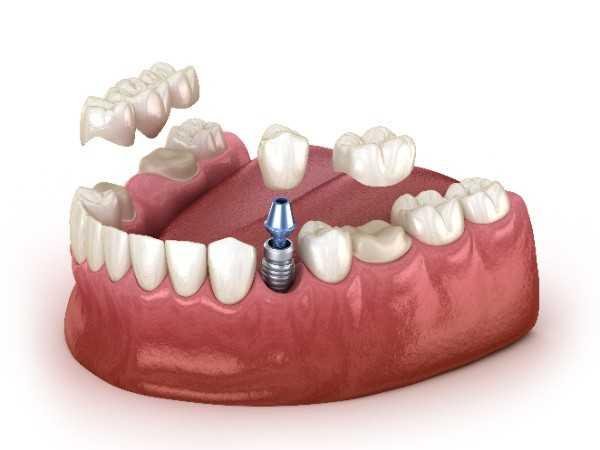Missing teeth can have a profound impact on your smile, confidence, and everyday life. Although a variety of treatments exist, dental implants remain among the most reliable and lifelike options available. They restore both function and aesthetics, giving patients the chance to enjoy life without the worry of slipping dentures or gaps in their smile. However, achieving the best results requires careful preparation. By preparing properly ahead of surgery, you can face the procedure with reassurance, knowing your implant journey is carefully planned and fully supported.
Understanding Dental Implants
Dental implants are small titanium posts placed into the jawbone, serving as artificial tooth roots. Once healed, they provide a secure foundation for crowns, bridges, or dentures. Unlike removable prosthetics, implants fuse with the bone, creating a strong and lasting solution.
Key benefits include:
- A natural appearance that blends seamlessly with existing teeth.
- Enhanced stability, allowing you to eat and speak comfortably.
- Long-term durability with the right care.
That said, not everyone is immediately ready for the procedure. Preparing your oral and general health beforehand ensures that your implant has the best chance of success.

Step 1: The Comprehensive Consultation
The journey begins with a thorough consultation. Your dentist will assess your oral health, discuss your medical history, and identify any issues that could affect implant placement. Advanced imaging such as X-rays or 3D scans may also be used to evaluate the condition of your jawbone and surrounding tissues.
This is also the stage where treatment options are explained. If you are prone to dental emergencies or have untreated issues, your dentist may work alongside an emergency dentist in Sheffield to address urgent problems before implant planning. By starting with a full evaluation, both patient and clinician can make informed decisions with confidence.
Step 2: Optimising Oral Health
Healthy gums and teeth are the foundation of implant readiness. Conditions such as gum disease, tooth decay, or persistent infections can undermine implant stability if left untreated. Before moving forward, your dentist will recommend addressing these problems.
Practical steps may include:
- Treating gum disease through scaling, root planing, or other periodontal care.
- Repairing cavities or replacing failing restorations.
- Professional cleaning to remove plaque and tartar.
Daily care matters too. Brushing twice a day with fluoride toothpaste, flossing, and using an antibacterial mouthwash will all support healing and prepare your mouth for surgery.
Video Link: Restore Your Smile with Expert Dental Implants!
Step 3: Making Lifestyle Adjustments
Lifestyle habits can significantly influence healing after a dental implant procedure. Smoking, for instance, reduces blood flow to the gums and interferes with bone integration. Reducing or quitting smoking before surgery greatly increases the likelihood of success.
Other adjustments include:
- Limiting alcohol: Excessive consumption slows recovery.
- Nutritional support: A balanced diet rich in calcium, vitamin D, and protein supports bone and gum health.
- Stress management: Reducing stress and improving sleep can enhance your body’s natural healing ability.
These small changes can have a huge impact on both the surgery and recovery period.
Step 4: Preparing Bone and Gum Health
Strong, healthy bone and gum tissue are essential for implant stability. If scans show insufficient bone density, your dentist may recommend procedures such as bone grafting or sinus lifts to build the foundation needed. Similarly, healthy gums are vital for holding the implant securely in place.
In some cases, patients may need additional treatments before proceeding. This is where collaboration between your dentist and an emergency dentist in Sheffield becomes vital, especially if sudden infections or pain arise that could delay implant placement. A proactive approach ensures your mouth is in the best possible condition for the procedure.
Step 5: Practical Pre-Surgery Planning
Preparation goes beyond oral health, it also involves getting ready at home and in your daily routine. Here are some helpful pre-surgery considerations:
| Preparation Area | What to Do Before Surgery |
| Time Off Work | Arrange a couple of days off to recover. |
| Diet Planning | Stock up on soft foods like soups, yoghurts, and smoothies. |
| Transport | Ensure someone is available to drive you home after surgery. |
| Aftercare Support | Ask a friend or family member to help with small tasks if needed. |
By preparing in advance, you’ll reduce stress on the day and focus more on recovery.
Step 6: Emotional Readiness and Confidence
Although clinical preparation is vital, it’s equally important to acknowledge the role of emotional readiness. Dental anxiety is common, but open communication with your dentist can ease concerns. Many clinics also offer sedation options to make the procedure more comfortable.
Setting realistic expectations is another important part of preparation. Implants take time to integrate with the bone, so patience is required before the final restoration is fitted. Focusing on the long-term outcome, a healthy, functional, and beautiful smile, can help you stay motivated throughout the process.
Step 7: What to Expect on the Day of Surgery
Knowing what to expect can significantly reduce nervousness. On the day of your dental implant procedure, you will be made comfortable with local anaesthesia, and sedation may also be available. The implant is carefully inserted into the jawbone through a simple procedure.
TThe whole procedure is meticulously organised to avoid any unexpected issues. Most patients return home the same day with detailed aftercare guidance on managing discomfort, maintaining cleanliness, and promoting proper healing.

Step 8: Aftercare and Recovery Essentials
Once the surgery is complete, following aftercare instructions is key to implant success. Immediate post-surgery care may include:
- Taking prescribed medications as directed.
- Eating soft, nutritious foods to avoid strain on the implant site.
- Avoiding strenuous activity for a short period.
- Practising excellent oral hygiene without disturbing the surgical area.
Healing takes time, and regular follow-up appointments allow your dentist to track progress. With the right care, your dental implant Sheffield can last for decades.
Conclusion
Preparing properly for dental implants ensures not only a smoother surgical experience but also long-term success. From thorough consultations and oral health optimisation to lifestyle changes and emotional readiness, every step plays an important role in the journey. If you’re considering treatment, take the time to follow this roadmap and give yourself the best chance of success. With the right support and preparation, residents in Sheffield can look forward to restoring their smile and confidence for years to come.

